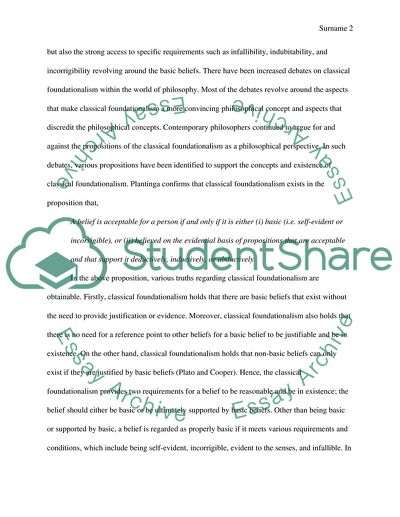Cite this document
(The Concept of Classical Foundationalism Essay Example | Topics and Well Written Essays - 1750 words, n.d.)
The Concept of Classical Foundationalism Essay Example | Topics and Well Written Essays - 1750 words. https://studentshare.org/philosophy/1624850-the-concept-of-classical-foundationalism
The Concept of Classical Foundationalism Essay Example | Topics and Well Written Essays - 1750 words. https://studentshare.org/philosophy/1624850-the-concept-of-classical-foundationalism
(The Concept of Classical Foundationalism Essay Example | Topics and Well Written Essays - 1750 Words)
The Concept of Classical Foundationalism Essay Example | Topics and Well Written Essays - 1750 Words. https://studentshare.org/philosophy/1624850-the-concept-of-classical-foundationalism.
The Concept of Classical Foundationalism Essay Example | Topics and Well Written Essays - 1750 Words. https://studentshare.org/philosophy/1624850-the-concept-of-classical-foundationalism.
“The Concept of Classical Foundationalism Essay Example | Topics and Well Written Essays - 1750 Words”. https://studentshare.org/philosophy/1624850-the-concept-of-classical-foundationalism.


